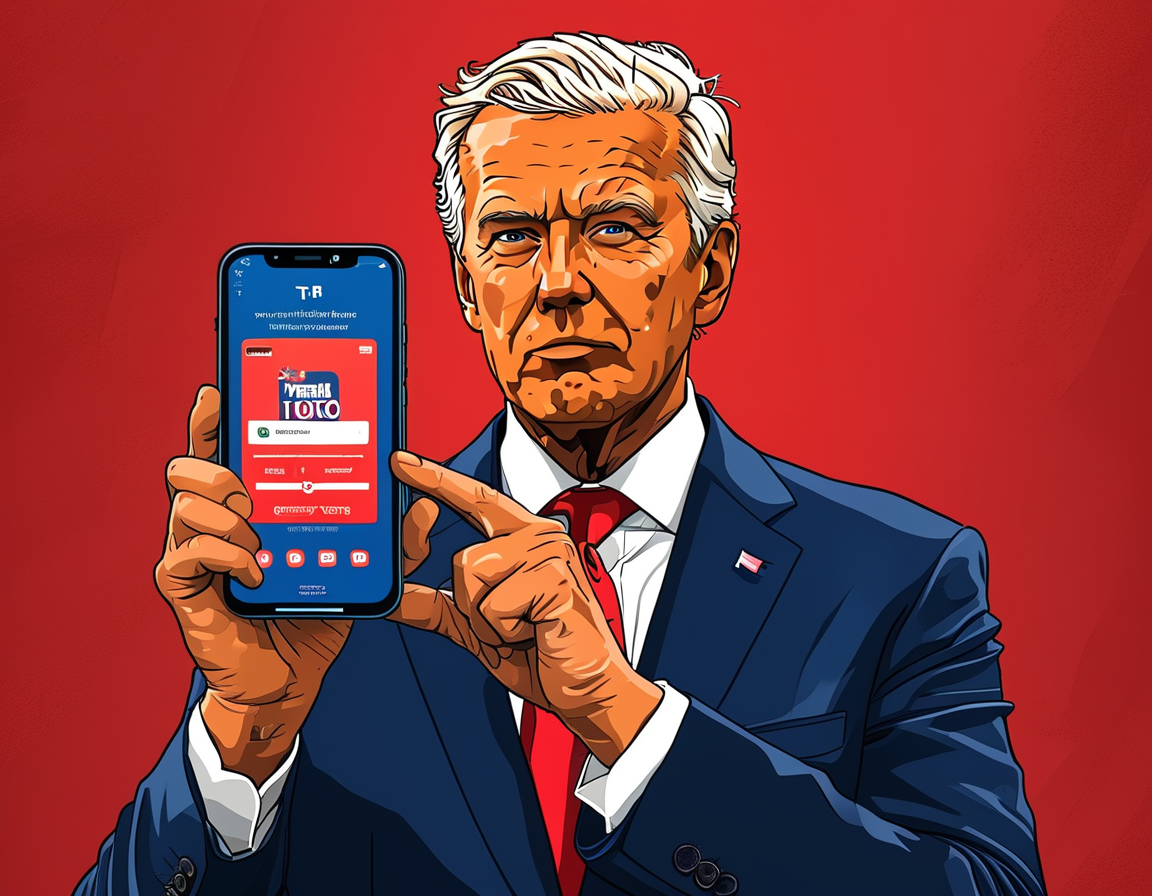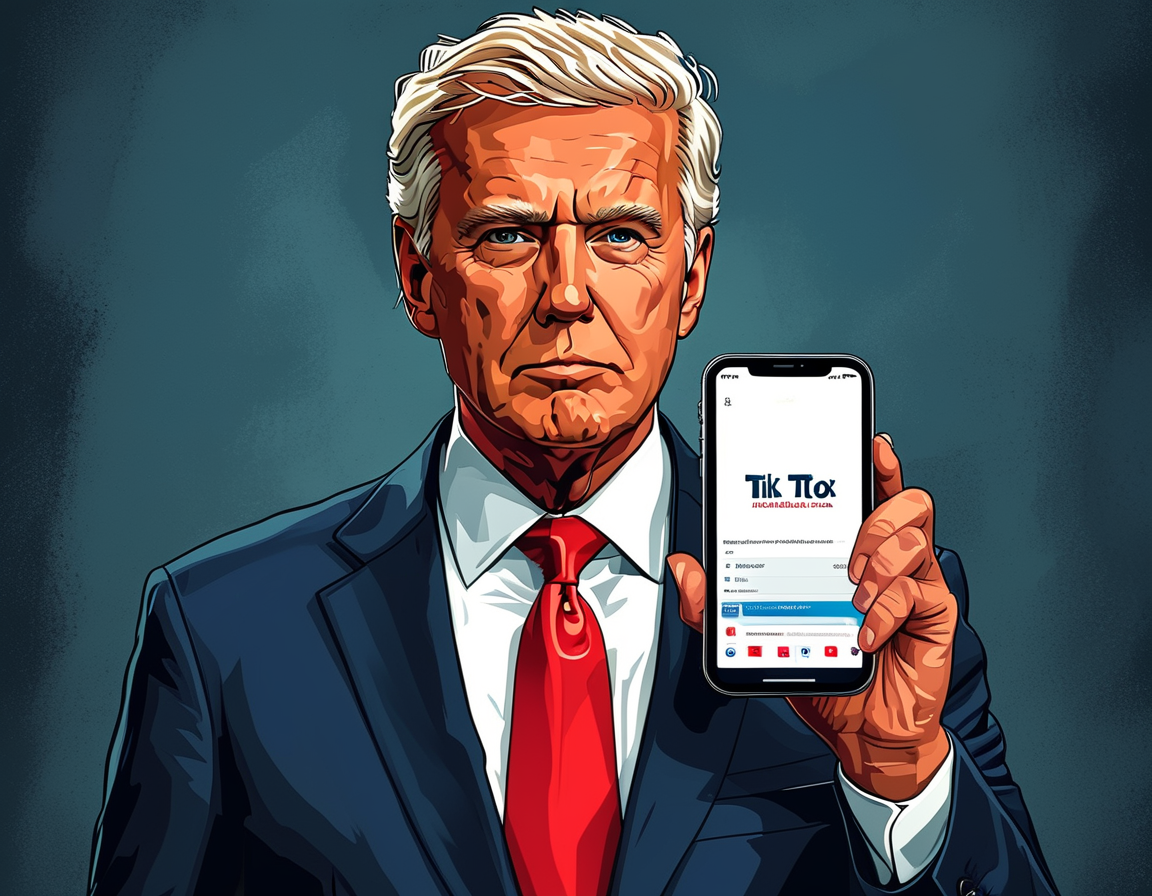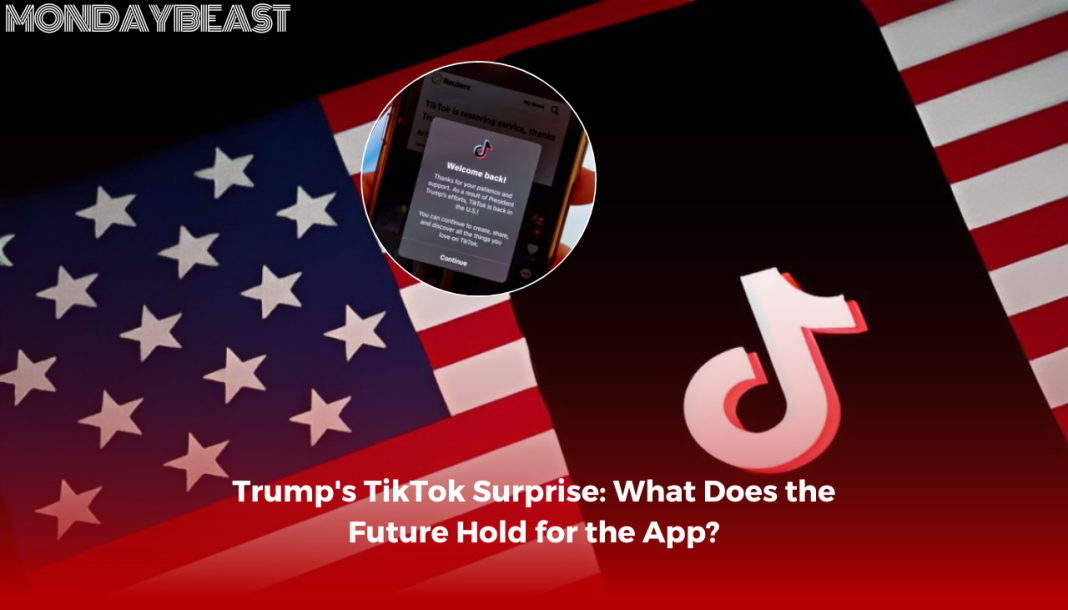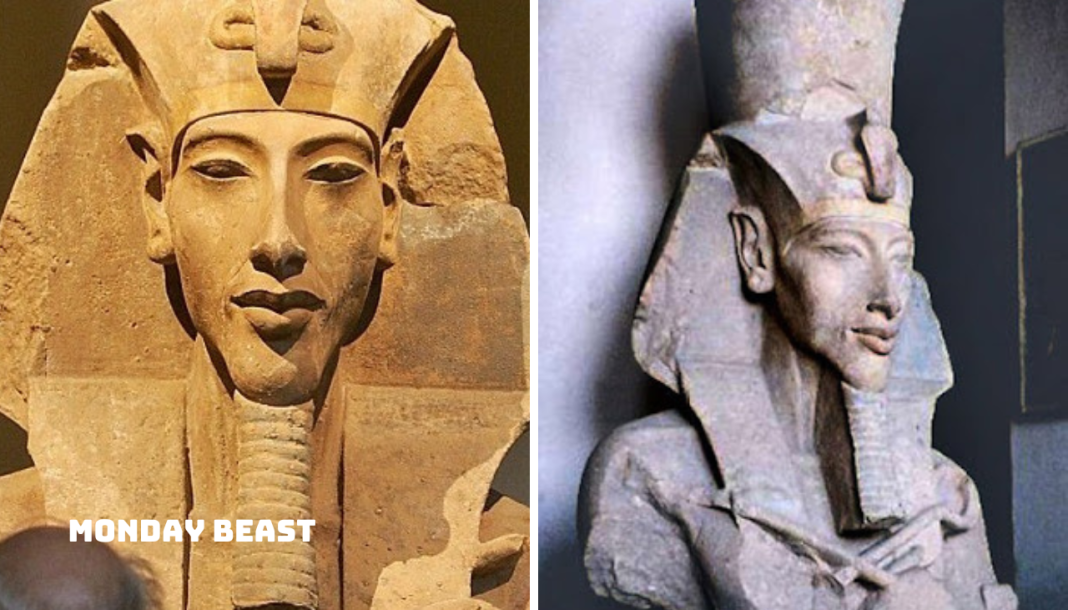A Presidential Reprieve for TikTok
Just when everyone thought TikTok was facing its final curtain call in the U.S., former President Donald Trump stepped back into the spotlight. He announced plans to extend the deadline for TikTok to find a US buyer. Trump’s resolution came just after the app stopped functioning for its 170 million American users—a moment that sent waves of uncertainty throughout the digital landscape. Can one man’s decision change the trajectory of a platform that has captured the hearts of millions?
In a post on Truth Social, Trump said he would issue an executive order upon taking office that would grant TikTok an additional 90 days to secure new ownership. This was no ordinary band-aid. He suggested that either the US government or an American company could take a significant ownership stake—possibly as much as 50%. It’s a fascinating twist in a narrative that’s already tangled in political and commercial intrigue.
With the app now back in service, Shou Zi Chew, TikTok’s CEO, expressed gratitude for Trump’s intervention. He thanked the new administration for ensuring service providers wouldn’t face penalties for delivering TikTok to eager American users. While the decision may seemingly save TikTok in the short term, can it truly offer a lasting solution? What does this mean for users and creators who depend on the app?
The Backdrop of TikTok’s Struggles
The controversy surrounding TikTok isn’t just about social media fun and memes. It’s about data ownership, privacy, and national security. The app, owned by the Chinese firm ByteDance, has faced scrutiny over fears that user data could be accessed by the Chinese government. These concerns only grew when Congress passed a law in April mandating that TikTok must sell to a non-Chinese entity or face a ban.
Users first began receiving messages indicating that the app was no longer accessible in the US late Saturday night. Some users expressed frustration while others shared disbelief on other platforms. Imagine suddenly losing a cherished part of your digital life, especially when it’s the main platform fueling your creativity or small business. That sudden loss resonates deeply—a reminder of how reliant we’ve become on digital interaction in our daily lives.

Meanwhile, as Trump staked his claim to keep TikTok alive, some worried that this suggested a future where data privacy concerns will remain unresolved. Would these proposed firewalls be sufficient to protect users? Trump’s former chief strategist, Mike Waltz, hinted that they would pursue a path of continued ownership as long as data safety measures could be implemented. But would you trust that arrangement?
Voices in the Political Arena
The political ramifications of TikTok’s future have sparked debate on both sides of the aisle. House Speaker Mike Johnson underscored that many congressional members are more concerned about the influence of the Chinese Communist Party than the app itself. This highlights a complex web where national security, commerce, and the safeguarding of individual freedoms intermingle. What truly will remedy the concerns surrounding TikTok? Is it really just ownership that’s needed?
Senator Tom Cotton and others have pushed back against the concept of extending the deadline, insisting that any future relationship with TikTok will require solid evidence that ByteDance has cut its ties with China. A sentiment many Americans may share is a need for transparency and a resolution that genuinely prioritizes their privacy. Lawmakers will need to tread carefully to alleviate these fears, but how can they achieve that without hampering innovation?
A Market in Flux

As discussions heated up, offers began surfacing. Celebrities like Kevin O’Leary entered the fray, with O’Leary reportedly offering a staggering $20 billion to purchase TikTok. This potential bidding war signals how valuable TikTok is, even amidst the fear and uncertainty surrounding its future. Would you sell your creative outlet for a hefty price? Who wouldn’t like a huge paycheck, right?
On the contrary, other experts believe merging TikTok with a tech firm might be a better path than a complete sale. Perplexity AI reportedly showed interest in forming a partnership rather than seeking outright ownership. With so many bidding waves, the stakes have been raised. But the critical question remains—who will emerge as the steward of a platform that has fundamentally changed how we connect?
What Lies Ahead for TikTok?
As the TikTok saga unfolds, users should not forget the stakes involved. The interplay of business, politics, and individual freedoms makes for a complicated landscape. With 170 million American users intertwined in this drama, will TikTok remain a vessel for creativity, or will it succumb to corporate politics?
Ultimately, each twist and turn presents opportunities for discussions about privacy, ownership, and innovation. In the end, we’re left wondering—can the social media giant thrive while appeasing both users’ needs and national security concerns? Only time will tell as we hold on to our phones and await the next chapter in this unfolding narrative.




